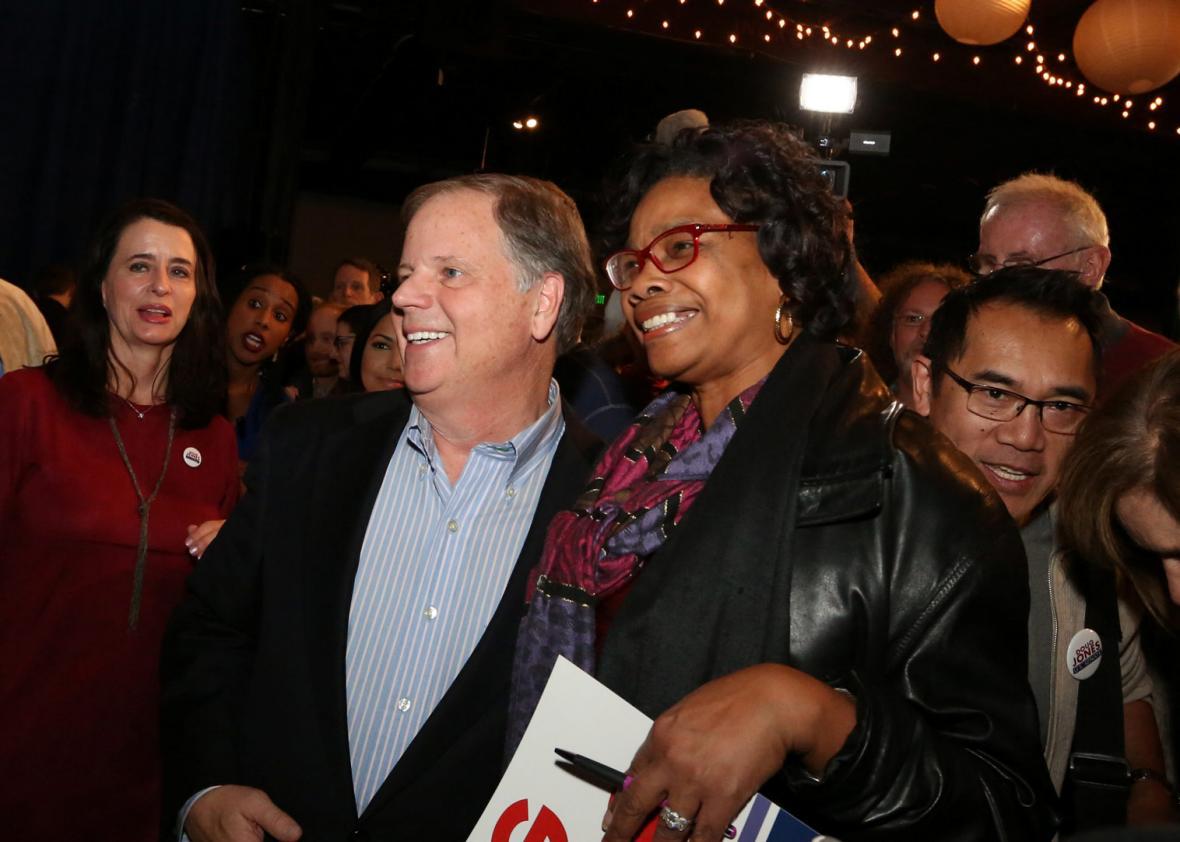The best virtuoso artists always deploy the same structure in their performances: They impress their audience by doing feats that seem impossibly improbable, juggling 13 iPhones or eating 17 snakes. And then, just as the audience thinks that they have seen it all, they take their performance to another level, adding nine selfie sticks to their juggling act or going on to devour three alligators.
By that standard, Republican leaders have put in a truly unforgettable performance over the past months. In a time span that will seem astoundingly short to future generations, politicians who had once fancied themselves men and women of principle surrendered to an irresponsible president, then colluded in his concerted attacks on American institutions. All of us stared at them, our mouths agape. And that, of course, is when they took things to another level: In a show of bravado and virtuosity unrivalled by Harry Houdini or Joey Chestnut, they endorsed a race-baiting, child-molesting theocrat for the U.S. Senate.
Eventually, though, even the greatest feat of virtuosity must bump up against the laws of gravity. This, to my immense relief, is what happened Tuesday night in Alabama. For the first time since 1992, a Democrat was elected to the Senate in a state that Donald Trump had won by 62 percent to 34 percent just one year ago. It is one of the more improbable political results in recent American history.
That, of course, makes it all the more tempting to overinterpret it. If Roy Moore had gotten some 20,000 more votes, many commentators would have concluded that Donald Trump is taking over the Republican Party and that Steve Bannon’s minions are capable of pulling off one electoral upset after another. Trump, some may have concluded, has a much better chance of being re-elected in 2020 than his poor approval ratings would suggest. Since Doug Jones has eked out a narrow victory against a candidate who could barely be more unappealing, the general consensus is, instead, swinging in the other direction: Trump has overplayed his hand. Republicans are done for. Democrats should use this opportunity to run the most progressive possible candidates.
The truth, as ever, is a whole lot messier than that. First, the Alabama election shows that a lot of the most noxious recent trends are still at play. At the beginning of the night, political cognoscenti like Nate Silver and Nate Cohn thought that Roy Moore would likely win because he was outperforming expectations in precincts in his heartland, which were the first to report. As the night went on, they started to realize that Doug Jones would eke it out after all because he, in turn, was outperforming expectations in his heartland. In other words: Even within states like Alabama, the electorate is continuing to polarize at a more rapid pace than the most well-informed observers expect.
Second, strange though this election might be, it does also suggest that the old rules of politics have not yet been entirely obliterated. For all of the recent talk of the old left-right spectrum no longer having real significance—and radical candidates on one end of the political scale having a decent chance of winning over disenchanted voters on the other end of the political scale—a surprisingly conventional explanation can make a lot of sense of what just happened: A few months ago, the outcome seemed foreordained because Alabama is such a reliably red state. But then Republicans ran a terrible candidate whose extreme positions alienated their traditional base. Meanwhile, Democrats ran an accomplished candidate whose centrist positions made it easier for moderate conservatives to switch camp. Despite all of Moore’s misdeeds, Democrats would almost certainly have lost in Alabama if they had run a consistent liberal.
The left would not be the left, of course, if we didn’t manage to turn the most glorious victory of the past few years into a huge internal squabble within hours of the election. The big question consuming newspaper columns and Twitter feeds right now is whether Jones owes his election to white voters who switched away from Moore or to black women who turned up to vote for him in huge numbers. But it doesn’t take a philosopher of collective action to recognize that this is one of so many instances in which the answer is “yes, and.” Given his narrow margin, Jones would have lost if minority voters hadn’t turned up for him in huge numbers. And he also would have lost if a significant number of traditional Republicans had not refused to support Moore.
For that reason, Democrats stand to gain very little from asking whether they should focus more on mobilizing their base or on appealing to swing voters. The only recipe for success is to do both. And that must involve both a proud and unwavering defense of the rights of underprivileged minorities and a promise that, even in the parts of the country most marked by a history of racial injustice, it is possible for Americans of all creeds and colors to join hands in fighting for a better future.
In his victory speech, Jones claimed that he has “always believed that the people of Alabama have more in common than divides us.” After this painful, divisive year, it is easy to mock the sentiment. But if we are to win back Congress in 2018 and the White House in 2020, we must lay out a vision for the future that is capable of convincing Americans of all walks of life that this aspiration might one day become reality.
